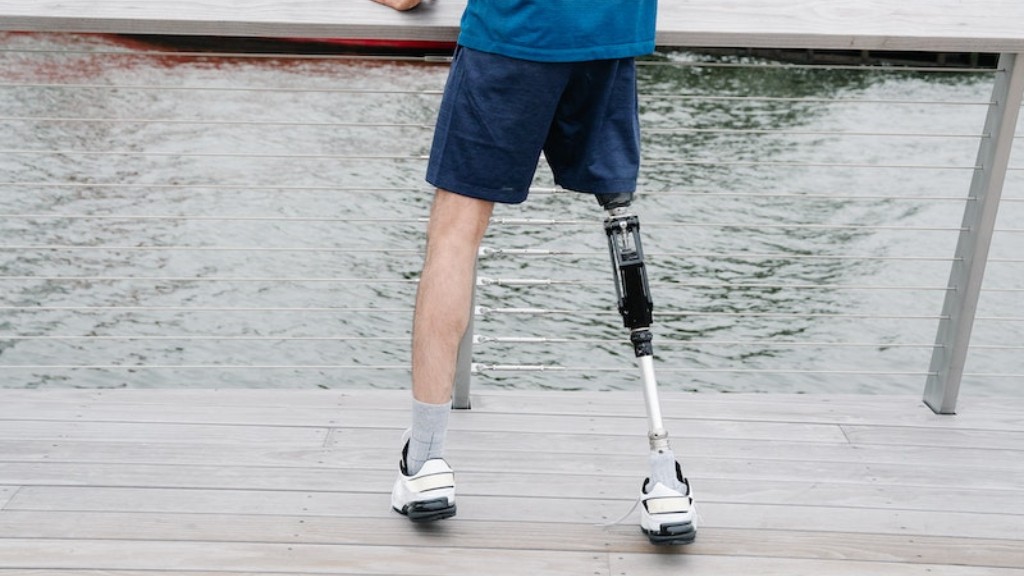A Step Forward: Orthotics & Prosthetics
Orthotics and prosthetics have significantly advanced over the years, revolutionizing the lives of individuals with mobility impairments. These technologies, which involve designing and manufacturing artificial limbs and supportive devices, have made remarkable strides in aiding people with disabilities to regain their independence and improve their quality of life. However, their development also presents challenges and raises ethical questions that need to be addressed to ensure equitable access and optimal outcomes for all patients.
The Positive Implications
One of the most significant benefits of orthotics and prosthetics is the restoration of mobility. By providing a means to overcome physical limitations, these technologies empower individuals to participate fully in daily activities, enhance their self-esteem, and achieve personal goals. For example, the story of Paralympic sprinter Oscar Pistorius, also known as the “Blade Runner,” highlights the immense potential of prosthetic limbs to enable extraordinary athletic performance. Pistorius became the first double amputee to compete against able-bodied athletes in the 2012 Olympics, inspiring millions around the world.
Another positive implication is the continuous innovation in materials and design, which leads to improved comfort, aesthetics, and functionality of orthotics and prosthetics. Researchers and engineers are constantly striving to develop lightweight and durable materials that mimic natural movements, enhance energy transfer, and reduce the risk of skin problems or discomfort commonly associated with traditional devices. Furthermore, advancements in 3D printing technology have opened up new possibilities for customization, allowing for more precise fitting and increased patient satisfaction.
The Negative Implications
While orthotics and prosthetics have undeniably transformed the lives of many, several challenges remain. Affordability and accessibility to high-quality devices are significant barriers, particularly in developing countries and marginalized communities. The cost of advanced orthotic and prosthetic devices can be prohibitive, preventing those in need from receiving the care they deserve. Additionally, limited access to trained professionals who can conduct proper assessments and provide fitting services further exacerbates this issue.
Another negative implication is the ethical considerations surrounding the use of orthotics and prosthetics. The boundaries between therapeutic and enhancement applications can be blurred, prompting debates on the use of these technologies in non-disability contexts. Some argue that allowing individuals without impairments to augment their abilities may lead to unfair advantages and create a divide between the “augmented” and “non-augmented” populations. Striking a balance between assisting individuals with disabilities and preserving the concept of a level playing field remains a challenging task.
Addressing the Challenges
To overcome the affordability and accessibility challenges, collaboration between governments, non-profit organizations, and the private sector is crucial. Initiatives aimed at reducing the cost of orthotics and prosthetics, such as Open Source designs and community-based clinics, have shown promise in increasing access to these technologies. Furthermore, training programs for local healthcare providers and technicians can help bridge the gap in expertise, ensuring that individuals in remote areas receive the necessary care and support.
The ethical implications of orthotics and prosthetics require comprehensive dialogue and policymaking. The involvement of diverse stakeholders, including experts in bioethics, practitioners, policymakers, and individuals with disabilities, is essential. Open discussions should evaluate the balance between promoting autonomy and preventing potential societal harm. Establishing guidelines and regulations that address the responsible use and distribution of these technologies can help steer the development and deployment of orthotics and prosthetics in an ethically sound direction.
Food for Thought
As we continue to witness advancements in orthotics and prosthetics, it is crucial to consider the broader impact on society. How do these technologies shape our definitions of disability, normalcy, and human potential? How can we ensure equitable access to innovative devices while maintaining fairness? These questions demand ongoing reflection and engagement from all stakeholders involved. By actively participating in these conversations, we can collectively shape a future where orthotics and prosthetics fulfill their potential in improving lives while upholding the values of inclusivity and equality.


